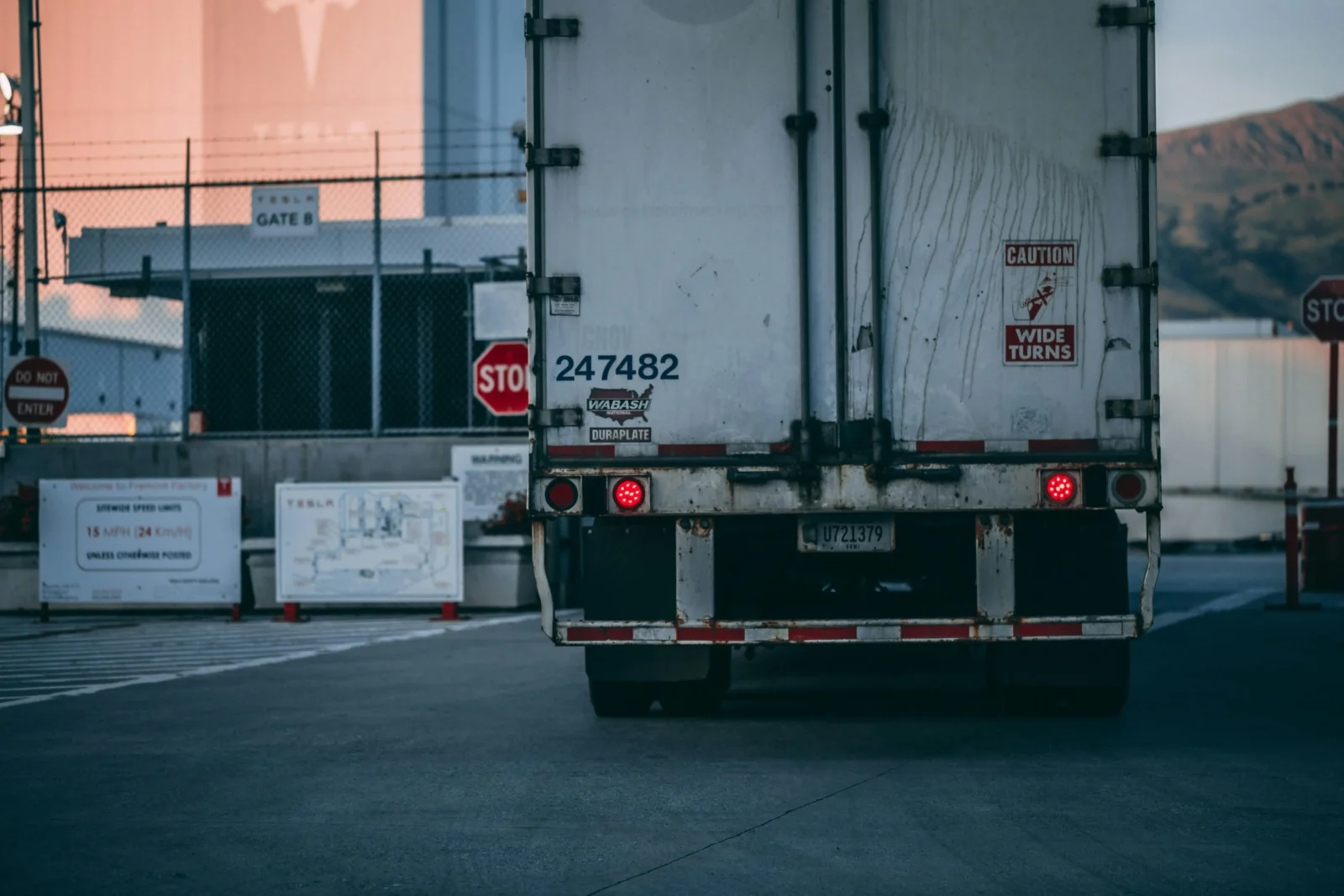Join us as we explore the hidden dangers of trucking company negligence and its profound impact on accident claims in Beverly Hills.
You’re about to discover how trucking company negligence affects accident claims in Beverly Hills. When companies fail to meet safety standards, the results can be disastrous. You might wonder how these lapses lead to serious accidents and what that means for victims seeking compensation. Understanding the role of negligence in these claims is essential, and there’s more to uncover about the legal complexities and challenges involved.
Understanding Trucking Company Responsibilities
A trucking company’s responsibilities are indispensable to ensuring safety on the roads and maintaining public trust. You’re likely aware that these responsibilities include adhering to strict regulatory compliance, which means ensuring trucks meet safety standards and drivers receive proper training. It’s essential they conduct routine maintenance and inspections to prevent vehicle failures. You might also know they must manage driver schedules to comply with hours-of-service regulations, preventing fatigue-related incidents.
When a trucking company takes these duties seriously, they’re not just protecting their assets; they’re safeguarding lives and reducing accident risks. Ensuring transparent communication and maintaining detailed records are also critical. By understanding these responsibilities, you can see how significant they are in preventing accidents and fostering trust within the communities they serve.
Common Types of Negligence in the Trucking Industry
When examining negligence in the trucking industry, it’s critical to identify its common forms to mitigate risks effectively. One major type is driver error, often caused by fatigue, distraction, or inadequate training. These issues can lead to accidents, endangering everyone on the road. Another prevalent form is improper vehicle maintenance. Trucks require regular inspections and repairs, and when companies neglect this, mechanical failures occur, increasing accident risks. Overloading is another common negligence type, where trucks carry more weight than legally allowed, compromising control and safety. Additionally, some companies cut corners with inadequate hiring practices, failing to confirm drivers have the necessary qualifications and clean records. Being aware of these negligence types helps you understand the potential dangers and encourages safer practices.
Legal Framework for Trucking Accidents in Beverly Hills
When you’re dealing with trucking accidents in Beverly Hills, understanding the legal framework is indispensable. You’ll need to navigate the liability determination process, ensuring compliance with both federal regulations and state-specific legal standards. Knowing these can profoundly impact the outcome of your claim.
Liability Determination Process
Determining liability in trucking accidents in Beverly Hills involves a multi-step legal process that can seem challenging. You’ll need to gather evidence and work with legal professionals to get clarity.
-
Evidence Collection: Gather all relevant information, such as accident reports, witness statements, and any available video footage. This step’s fundamental for establishing fault.
-
Legal Evaluation: Attorneys will analyze the evidence to determine negligence. They’ll consider factors like driver conduct, vehicle maintenance, and company policies.
-
Fault Determination: After evaluation, liability is assigned. This might involve court proceedings if parties can’t agree on responsibility.
Understanding these steps can help you navigate the legal complexities of trucking accidents. With the right approach, you’ll be more prepared to address potential claims.
Federal Regulations Compliance
Federal regulations play an indispensable role in shaping the legal framework for trucking accidents in Beverly Hills. These rules, set by the Federal Motor Carrier Safety Administration (FMCSA), guarantee trucking companies and drivers adhere to safety standards. You’ll find that compliance with these regulations is essential when determining negligence in an accident. For instance, rules about hours of service prevent driver fatigue, while maintenance regulations ensure vehicles are safe. If a trucking company or driver fails to meet these standards, it can profoundly impact a claim. You should be aware that demonstrating a violation of federal regulations often bolsters your case, as it highlights negligence. Understanding these regulations helps you navigate the complexities of pursuing a trucking accident claim.
State-Specific Legal Standards
While federal regulations provide a broad safety framework, it’s the state-specific legal standards that fine-tune the approach to trucking accidents in Beverly Hills. California laws play an essential role in determining liability, compensation, and the legal process. Understanding these can significantly impact how you handle a claim.
-
Negligence Rules: California uses a comparative negligence system, meaning your compensation can be reduced by your percentage of fault.
-
Statute of Limitations: You typically have two years from the accident date to file a personal injury lawsuit.
-
Insurance Requirements: California mandates higher insurance minimums for commercial trucks, ensuring there’s often more coverage available for claims.
Grasping these standards can help you navigate the complexities of a trucking accident claim in Beverly Hills.
How Negligence Leads to Accidents and Injuries
Negligence in the trucking industry can lead to severe accidents and injuries, often with devastating consequences. When truck drivers or companies cut corners, it puts everyone at risk. Imagine a driver skipping mandatory rest breaks to meet tight deadlines. Fatigue sets in, slowing reaction times and impairing judgment. Or, think about poorly maintained trucks. Worn brakes or faulty tires can cause catastrophic failures on the road. It’s not just the truckers facing peril; you and other motorists are in danger, too.
Moreover, inadequate training and supervision can result in inexperienced drivers behind the wheel of massive vehicles. These factors combine to create hazardous conditions, making accidents more likely. When negligence occurs, the resulting injuries can be life-altering, affecting both physical and emotional well-being.
Establishing Liability in Trucking Accident Claims
How do you determine who’s at fault in a trucking accident? Establishing liability is vital for your claim. You’ll need to gather evidence to pinpoint responsibility.
-
Investigate the Scene: Collect photos, witness statements, and police reports. These details help determine what happened and who might be liable.
-
Examine Driver Conduct: Look into the truck driver’s behavior. Were they speeding, distracted, or under the influence? Any violations can establish negligence.
-
Evaluate Company Practices: Review if the trucking company followed regulations. Did they maintain vehicles properly? Was there adequate driver training? Companies can be held accountable for lapses.
The Role of Insurance Companies in Trucking Claims
Once you’ve identified who’s responsible, the next step is dealing with insurance companies, which play a significant role in trucking accident claims. They’re often the ones you’ll be negotiating with for compensation. Insurance companies represent the trucking firm’s interests, sometimes making it challenging for you to receive a fair settlement. They might employ tactics to minimize payouts or delay the process, hoping you’ll settle for less. It’s vital to understand your policy and the trucking company’s insurance coverage. Hiring a lawyer experienced in trucking claims can help you navigate these complexities. They’ll make certain that the insurance companies don’t take advantage of you, advocating for the compensation you deserve. Remember, having professional support can make a significant difference in your claim’s outcome.
Steps to Take After a Trucking Accident
When you’re involved in a trucking accident, taking immediate and informed steps is indispensable for protecting your rights and securing compensation. Your actions right after the accident can vastly impact your claim’s outcome.
-
Ensure Safety and Seek Medical Attention: Prioritize safety by moving to a secure location and calling for medical help, even if you feel fine. Some injuries aren’t immediately apparent.
-
Document the Scene: Take photos of the accident, damages, license plates, and any skid marks. Gather contact information from witnesses and the truck driver.
-
Report the Accident: Contact the police to report the accident. An official report will be pivotal for your insurance claim and any legal proceedings.
These steps will help safeguard your interests effectively.
Challenges in Pursuing Compensation
When you’re pursuing compensation after a trucking accident, it’s vital to identify all responsible parties, which can include drivers, trucking companies, and even vehicle manufacturers. Gathering essential evidence, like accident reports, witness statements, and maintenance records, will strengthen your case. However, overcoming legal hurdles, such as maneuvering through complex regulations and potential disputes over liability, can be particularly challenging.
Identifying Responsible Parties
Traversing the intricacies of identifying accountable parties in trucking company negligence cases can be formidable. You’re not just dealing with the truck driver; multiple parties may share liability. Here’s what you need to ponder:
-
Trucking Company: They may be liable for hiring practices, inadequate training, or poor vehicle maintenance. If they’ve cut corners, it can lead to accidents.
-
Vehicle Manufacturer: Sometimes, a defect in the truck itself can contribute to the incident. Faulty brakes or steering can turn a routine drive into a nightmare, and the manufacturer could be responsible.
-
Loading Company: If the cargo wasn’t loaded securely, the loading company might bear responsibility. Shifting loads can cause a driver to lose control, leading to serious accidents.
Identifying these parties is vital for compensation.
Gathering Essential Evidence
Determining who’s at fault in a trucking accident is just the beginning; the real challenge lies in gathering the necessary evidence to support your claims. You’ll need to collect a wide range of evidence, including police reports, eyewitness statements, and any available video footage. Don’t overlook the significance of the truck’s black box data, which can provide critical insights into the vehicle’s speed, braking patterns, and more. You should also secure maintenance records to check for any negligence in vehicle upkeep. Photographic evidence from the accident scene—documenting road conditions, vehicle positions, and damage—can be indispensable. Remember, gathering this evidence quickly is pivotal, as companies might try to repair or alter vehicles, making it harder to prove negligence later.
Overcoming Legal Hurdles
Traversing the legal landscape to secure compensation after a trucking accident can present several significant challenges. You’ll face obstacles that require keen attention to detail and strategic planning.
-
Proving Negligence: Establishing the trucking company’s fault isn’t always straightforward. You’ll need solid evidence, like logbooks and maintenance records, to demonstrate negligence.
-
Navigating Complex Regulations: Trucking companies often operate under intricate federal and state laws. Understanding these regulations is essential in building a strong case.
-
Dealing with Insurance Companies: Insurers may attempt to minimize payouts. Be prepared to negotiate aggressively or even pursue litigation to guarantee fair compensation.
Focusing on these areas can help streamline your legal journey and increase your chances of securing the compensation you deserve.
Importance of Legal Representation in Trucking Claims
Maneuvering the intricacies of trucking claims necessitates more than just a fundamental grasp of the law; legal advocacy is imperative. You might think you can handle the situation alone, but trucking companies often have teams of lawyers protecting their interests. Without experienced legal representation, you could be at a significant disadvantage. That’s why working with truck accident legal experts in Beverly Hills can make a crucial difference. A skilled attorney can help gather essential evidence, such as driver logs and maintenance records, and ensure compliance with federal regulations is properly evaluated. They’ll also negotiate with insurance companies to seek fair compensation for damages, medical expenses, and potential loss of income. This legal expertise can be the difference between a successful claim and an undervalued settlement.
Frequently Asked Questions
What Are the Common Defenses Used by Trucking Companies in Negligence Claims?
When you’re dealing with negligence claims against trucking companies, they often use several common defenses. They’ll argue driver error wasn’t their responsibility, claiming the driver was an independent contractor. They’ll also point to mechanical failures, stating they performed regular maintenance. Sometimes, they’ll say the weather or road conditions were uncontrollable factors. You might even hear them argue contributory negligence, suggesting you were partially responsible for the accident.
How Does Weather Impact Trucking Accident Claims in Beverly Hills?
When you’re dealing with trucking accident claims in Beverly Hills, weather can play a vital role. If it’s raining or foggy, it might complicate matters by introducing elements like reduced visibility and slippery roads. You might find that trucking companies use weather conditions as a defense, arguing that it wasn’t entirely their driver’s fault. However, if they’re not taking proper precautions for adverse weather, they could still be held liable.
Can Trucking Company Negligence Affect Personal Injury Settlements?
When you’re dealing with personal injury settlements, trucking company negligence can profoundly impact the outcome. If a company didn’t follow safety regulations or failed to uphold their trucks, it could bolster your claim. You might receive a greater settlement if you can demonstrate their negligence contributed to the accident. It’s pivotal to amass evidence like maintenance records or driver logs to support your case and guarantee you’re compensated equitably.
What Role Do Truck Drivers’ Hours of Service Play in Accident Claims?
When considering truck drivers’ hours of service, you’ll find they play a critical role in accident claims. Regulations limit driving hours to prevent fatigue, a common cause of accidents. If a driver exceeds these limits and causes an accident, it can drastically affect your claim. Proving that a driver was overworked strengthens your case, as it highlights negligence, potentially increasing settlement amounts by demonstrating a breach of duty to guarantee safety.
How Can Technology Aid in Proving Trucking Company Negligence?
You’re looking into how technology can help prove trucking company negligence, right? Well, things like GPS data, electronic logging devices, and dash cams are your best friends here. They can track a truck’s speed, routes, and drivers’ hours, making it easier to spot any violations or risky behavior. If a company’s cutting corners, these tools can provide solid evidence, showing when rules weren’t followed, which is essential in building your case.














Leave a comment